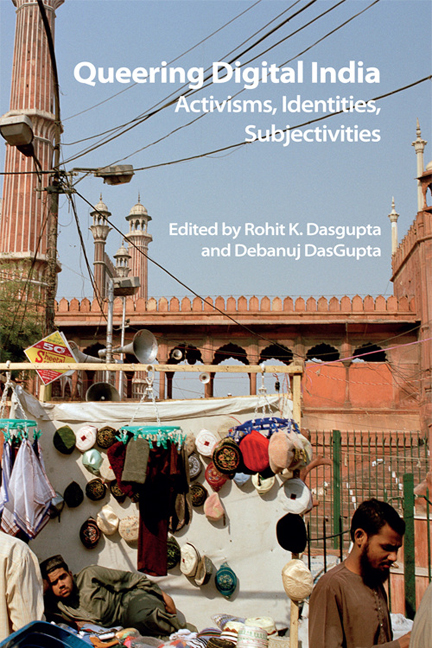6 - Digital Outreach and Sexual Health Advocacy: SAATHII as a Response
Published online by Cambridge University Press: 28 April 2021
Summary
Introduction
Increasing HIV infections among gay men, other men that have sex with men (MSM) and trans communities coupled with the low impact of traditional HIV prevention and capacity-building approaches in enabling access to health services are a serious problem in India. This chapter reports on how an HIV capacity-building charity, Solidarity and Action Against the HIV Infection in India (SAATHII), used digital media and the internet to transform HIV prevention across India. Borrowing the concept of social capital as defined by Bourdieu (1986), this chapter attempts to understand how expertise is created and maintained in digital spaces. Beginning from Kolkata, India, I describe how SAATHII uses digital and social media for peer outreach and sexual health sensitisation. The project illustrates how through digital media and the internet, SAATHII was able to widen access, advocacy and information dissemination among multiple audiences to complement traditional community mobilisation HIV prevention approaches. To conclude I reflect on SAATHI's work with digital media and the internet with a set of key lessons that have emerged from my ethnography. I provide my reflections based on the notion of credibility and how credibility (Mowlabocus et al. 2015) is created that allow for mobilisation and advocacy in Kolkata to disrupt dominant approaches to HIV prevention in India so as to better meet the challenges of developing AIDS-resilient communities.
Gay men, other men who have sex with men (MSM) and trans individuals in India are at higher risk of new HIV infections than other men (NACO 2014). Due to the broader disempowering national, social and legal frameworks that criminalise and ‘regulate’ their behaviours, they face robust hostility from mainstream health providers (Dasgupta 2012; Khan 2004; World Bank 2009). The availability of Voluntary Confidential Counselling and Testing (VCCT) services does not appear to have alleviated apprehension among gay men, other MSM and trans communities in accessing health services. The biggest challenge for HIV prevention and capacity-building approaches is the lack of tailored healthcare provision specifically designed to meet their needs. This situation is made worse due to the structural violence experienced by gay men, MSM and trans people, and the lack of understanding of the complexities of their sexual practices among healthcare providers (Chakrapani et al. 2008).
- Type
- Chapter
- Information
- Queering Digital IndiaActivisms, Identities, Subjectivities, pp. 112 - 131Publisher: Edinburgh University PressPrint publication year: 2018



